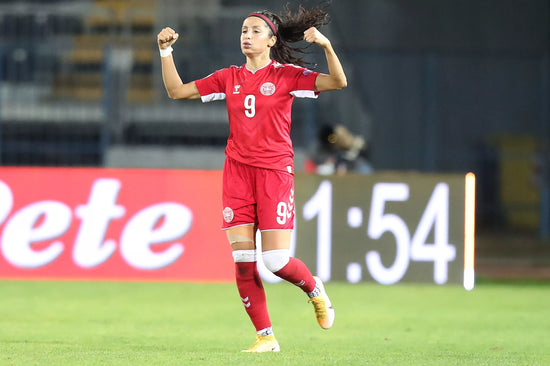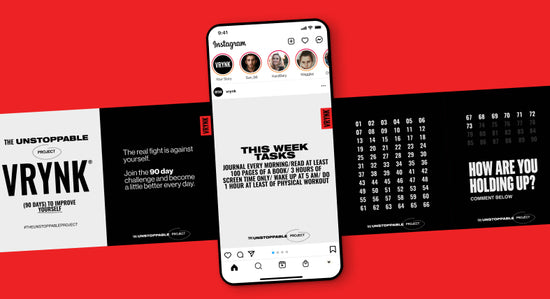How Nadia Nadim continues to defy the odds?
Nadia Nadim has not only become one of the world’s best soccer players, but she is also a surgeon specialized in reconstructive surgery, an UNESCO Ambassador and a role model for millions of people around the world.
By all accounts, she is an exceptional human being who has led an extraordinary life and is exceeding all expectations.
After taking up soccer as a young girl, she enjoys a successful career playing the sport she loves.
But for Nadia, it did not matter what she dreamt of doing or went on to do, she has always possessed the desire to succeed.
“I don’t remember a specific dream I had when I was living in Afghanistan,” she said. “But I always knew I wanted to be successful.”
And her push to be the best version of herself influenced life off the soccer field, too.
In 2022, Nadia fulfilled her goal of becoming a doctor.
Finding refuge in Denmark
Nadia Nadim (born on the 2nd of January 1988) was raised in Afghanistan until her father, an Afghan National Army general, was executed by the Taliban in 2000. Months later, at the age of 11, her family escaped the country in the middle of the night.
They were smuggled out of Afghanistan in the back of a truck on a route that took them to Pakistan, where they spent two months before flying to Italy. From there, they were put in a van and “somehow ended up in a refugee camp in Denmark.”
Their family were granted refugee status in Denmark once their time at the asylum came to an end.
But for Nadia, she couldn’t quite shake the feeling that somehow, her father would return to them.
“Until I was 15-years-old, even when we were in Denmark, in my brain, [it] was always that one day he was going to turn up”.
Although those wishes never came true for Nadia, fleeing to Denmark gave her the opportunity to be a kid again, away from the war in her homeland.
During her nine months in the refugee camp, Nadia watched behind a fence as a group of Danish girls played soccer. “There was a girls team that played on the same fields there, so we asked if we could play with them.”
“This is the first time I discovered football,” she said. “It was love at first sight.”
It was also one of the first times she saw females playing sports. Under Taliban rule, such activity can be interpreted as an act of defiance.
“I knew that I needed to be on that field and play football,” Nadia said.
Playing through the Danish club system, she rose to the national team in 2009 and played for some of the top teams around the world, including Manchester City WFC, Paris Saint-Germain Féminine, Portland Thorns and now Racing Louisville FC. Nadia has scored over 200 goals during her soccer career and helped bring club championships to the Thorns in 2017 and PSG in 2021 beating off the ever-dominant Lyon.
Even for all her success on the field, Nadia doesn’t see it as a job, but rather as her passion.
“I love football but I’ve never thought of it as a job,”.
“It’s just my passion. Even though I get paid money to do it, I would happily play for free.”
“For me, I wanted more than that. I wanted to do something where I could have an impact on people’s lives.”
Graduating from medical school
Where many soccer players cannot imagine life beyond soccer, for Nadia there has always been a plan.
And that was to help others, just as others have helped her and her family.
"I know the value of helping a person when they have no hope.”
“I’m a walking reminder of that; all the help I was given in my life made me the person I am today.”
Her desire to give back has been channelled into medical school.
Nadia has been training to become a reconstructive surgeon for years alongside playing professionally.
She even remembers at one point she assisted in surgery immediately after playing a game.
“I was standing there for two hours, in the same position, holding an instrument so he could see better,” she recalls.
“I was hurting everywhere because of the match but I was still feeling so great and my pulse was racing.”
“I experience similar emotions [to scoring a goal] or adrenaline rush in the operating room,” she adds.
Nadia often recounts stories of how people have helped her throughout the years.
When she began playing soccer in Denmark, coaches at her first club offered to cover transport expenses given how far away she lived from it at the time. These moments “had a huge impact on me,” she said.
“I know as a doctor, I’ll be able to do that for other people.”
“I know 100 percent that I want to be a surgeon.”
And in early 2022, the dream that she had been working towards for all these years came true as she qualified to become a doctor.
Nadia shared the news across her social media, saying: “For the haters, I did it again. Kicked a** and there’s nothing you can do about it!”
Nadia’s legacy will be felt across generations.
Whether it is encouraging young people to become soccer players or doctors, or acting as a beacon of hope for those in similar situations to her, her story will inspire for many years to come.
“I feel I play soccer or football for myself,” she said. “It’s my hobby. I enjoy it. But I wanted to do something more than that. I wanted to have an impact.” Over the past decade, the process of balancing her professional athletic career for club and country with medical school was grueling.
“I did ask myself the question: Why am I doing this? What’s the point?” she said. Yet she never backed down.
“You have to remember why you started this journey,” she said. “And you have to envision the goals you set yourself, the light at the end of the tunnel. And that’s what keeps me motivated.”
When her soccer career eventually ends, Nadia said she would like to join Doctors Without Borders. But whatever she does next, she will never sever her relationship with the sport that changed her life.
“I always want to be connected to football in a certain way because I think it’s a powerful game,” she said. “I want to be in a position where you actually are going to have an impact on other people’s lives and help people because I know how it is to receive the help.”
“And I know how much it means when you’re in need, and someone actually does something for you.”
She hopes to one day “bring this beautiful game around the corners of the world where people do not have access to it yet.”
“Particularly girls, unfortunately, who are not allowed to play.”
Nadia, who is fluent in eight languages, was appointed a UNESCO Champion for girls and women’s education in 2019.
Since Afghanistan fell again to Taliban rule in August 2021, there’s been a documented effort to evacuate women playing sports from the country.
Nadia was one of the 3,525 Afghan refugees who sought asylum in Denmark in 2000, according to the Office of the United Nations High Commissioner for Refugees. A total of 86,201 Afghan refugees have sought asylum there from 2000 to 2021.
Nadia, 34, has lived outside Afghanistan nearly twice as long as she lived in it. That time and distance has given her a rare perspective. While the Taliban has enforced a strict form of misogyny, Nadia’s family is proof that any female, given a chance, can achieve remarkable things.
Nothing is impossible in this world if you have the courage and determination to do it. Nadia is certainly proving it!




